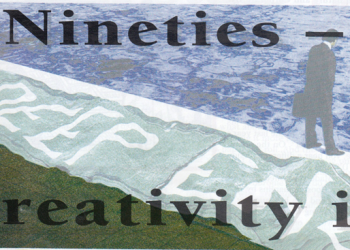Repositioning For the Next Millennium’ was the theme of the 17th National Conference of the Institute of Chartered Accountants of Sri Lanka (ICASL), which coincided with the 12th Anniversary Celebrations of the South Asian Federation of Accountants (SAFA) in mid-December 96′. The ceremonial inauguration of the conference took place at the Institute’s auditorium under the distinguished patron age of Dharmasiri Senanayake, Minister of Media, Tourism and Aviation. The Technical Sessions which went on for two days were conducted at the BMICH in Colombo.
Delivering the Presidential Address, Reyaz Mihular, President of ICASL said that the theme chosen was very appropriate, with the millennium less than four years away, “although Chartered Accountants have adopted some form of re-positioning of their roles over the last few years, the new millennium will demand accountants who can best fit the requirements of that period.”

Explaining the rationale for the theme, a former President of ICASL Nivard Cabraal said that the forces driving such a change fall into five categories, “firstly, the increased understanding and knowledge of our clients, of the subject matter of our own profession and their questioning and sometimes combative attitude”. He said the days when the professional accountants and the client had a typical ‘all knowing professional’ and ‘docile’ client relationship are no more, “today, clients question and want to know why certain things are done or not done in certain ways. As a profession, we have to deal with such ‘new’ attitudes,” he added.
The second factor is the competition both within the profession and from outside, “something that we are now gradually getting used to and will probably have to get used to in the future, is the competition from other professions which provide services similar to ours,” explained Cabraal.
Thirdly, there is more Governmental, societal and ethical pressures on the profession, he said, “we can no longer work within our own ‘environment’ only. We are judged on performance, values, ethics and attitudes by a whole host of persons who have direct and/or indirect use of our services.”
Pressures from rapidly changing technology and extremely powerful communication systems is the fourth factor, “as we are now experiencing, Information Technology has caused a massive revolution in our lives. Just when we think we have come to grips with the technological developments, the next massive wave nearly knocks us out,” he added.
The fifth factor is deregulation and liberalisation. Whilst this has certainly expanded an accountant’s opportunities, it has also placed a lot of responsibility on the profession to regulate itself effectively.
“It therefore follows that we have to develop strategies to respond to these pressures. One such strategy is re-positioning ourselves to face the next millennium”, he plained.
He also went on to say that re-positioning would help Chartered Accountants to change their stance from being ‘technically-oriented know-how persons to that of ‘creating client-satisfying relationships in a long term strategic alliance’. Such re-positioning will obviously need careful planning and targetting, but for the time being it will demand a rather serious change of attitude and at change of the posture of the Accountant, in order to deliver true value and also to be in a position to create client-satisfying relationships in the long term.
As Mihular stated, “the future will not require us to prepare accounts, this would be done by computers. The accountant instead will be required to tell the story behind the figures and quite often cross the divide between finance and general management. If he does not do so, he will soon become a fossil which everyone will look at with interest but will have no further use for.”
In his Keynote Address, the Guest of Honour M V Mushin, a product of ICASL and currently, Director Information & Technology Services of the World Bank, said “basically, I see three challenges which are of a different nature from the routine functions of an accountant. The first is to help our country to reduce poverty and for us to join the mainstream of the global economy. The second is to help future generations to be at the cutting edge of management and thirdly, for us and for this country to not be left behind by the information and technology revolution.”
by Sharmini Serasinghe



